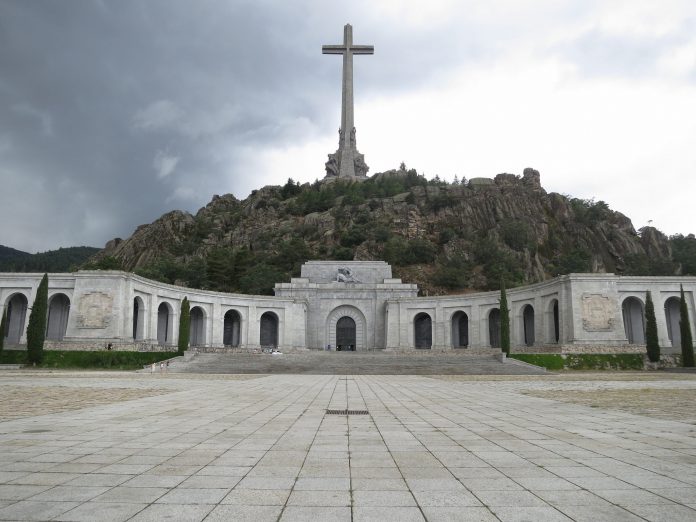The family of Francisco Franco want to rebury the dictator’s remains inside the cathedral of La Almudena, a landmark site in the heart of Madrid. But the Spanish government is trying to stop them.
Spain’s Pedro Sánchez administration is also considering the option of legally shutting down any public spaces that allow Franco supporters to congregate to honour his memory and his regime, which lasted from the end of the Civil War (1936-1939) until his death in 1975.
As reported by Spain’s newspaper El País, Spain’s Socialist Party (PSOE) government and Franco’s family are locked in a protracted battle over the future of the dictator’s remains.
When Sánchez became the new prime minister of Spain in early June through a successful no-confidence vote against Mariano Rajoy of the conservative Popular Party (PP), he pledged to take Franco’s remains out of the Valley of the Fallen, a controversial basilica and mausoleum located 50km outside Madrid.
But Franco’s family opposes the move and announced that if they are forced to exhume the body, they will take it to the family vault inside La Almudena cathedral, which already holds the remains of Franco’s daughter Carmen Polo.
La Almudena is a landmark building that attracts thousands of visitors each year, and the government is now facing the prospect of watching it become a pilgrimage site for Franco supporters.
In response, the PSOE has drafted an amendment to the law that specifically mentions Franco’s remains and states that these may not be interred in any place that is accessible to the public, according to party sources. If approved, this amendment would force the Franco family to find a cemetery that is not open to the general public.
According to El País, a second draft amendment makes the owners of publicly accessible spaces responsible for any acts that glorify Franco, and subject to sanctions ranging from monetary fines to the temporary or even permanent closure of these places, said the same sources. This means that the government could even close churches if these were used for such purposes.

